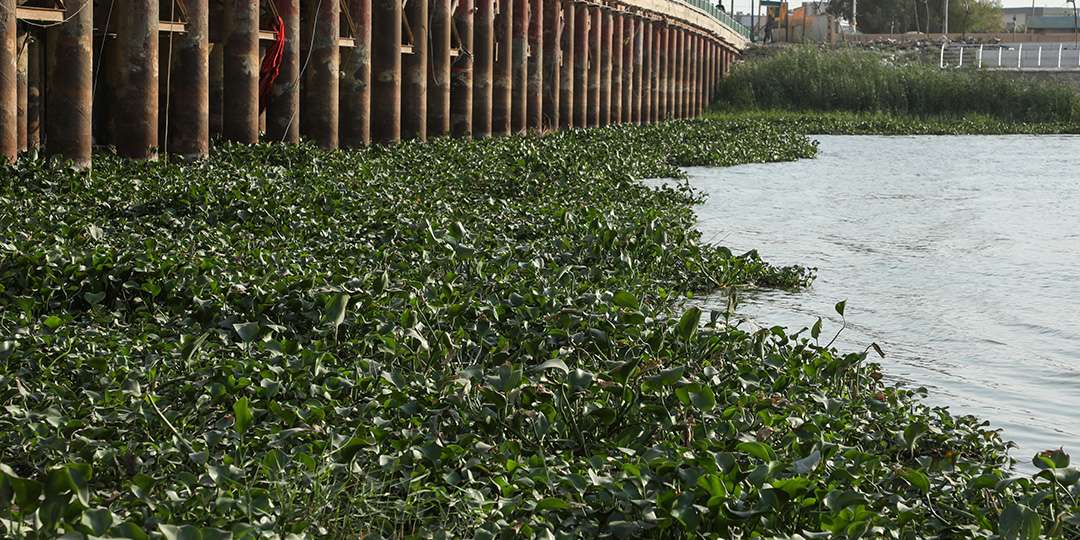The level of the Euphrates River has dropped to its “lowest in decades” in recent weeks, according to Iraqi authorities and experts cited by Agence France-Presse, as the country faces the worst water crisis in its modern history.
The sharp decline in flow, particularly in southern Iraq, risks worsening pollution and fueling the spread of algae and invasive plants that could clog waterways.
With a population of over 46 million, Iraq has for years suffered from severe drought, soaring temperatures, and declining rainfall. Baghdad has repeatedly accused neighboring Turkey and Iran of significantly reducing the flow of the Tigris and Euphrates by building dams upstream.
Hassan al-Khatib, a professor at the University of Kufa, told AFP that the river is now at “its lowest levels in decades,” stressing that reduced flow has intensified pollution and disrupted the ecosystem through the spread of algae and the invasive Nile flower plant.
Water Resources Ministry spokesman Khaled Shamal warned that Iraq now has “the lowest water reserves in its history,” receiving less than 35% of its expected share of water from the Tigris and Euphrates. Authorities said water storage in dams and reservoirs has fallen to less than 8% of capacity — down from about 10 billion cubic meters in May to 8 billion in early September.
Experts warned that releasing water from old reserves to feed the river has encouraged algae growth, which depletes oxygen and threatens aquatic life. The Environment Ministry has also cautioned that falling water levels in Karbala could worsen bacterial contamination.
In Najaf, environmental officials confirmed that the quality of raw Euphrates water has sharply deteriorated. Meanwhile, in Dhi Qar province, AFP correspondents observed widespread growth of the invasive Nile flower plant (Eichhornia crassipes), which absorbs up to five liters of water per day and blocks sunlight and oxygen, suffocating aquatic species. The plant has been listed as invasive by the European Commission since 2016.
Despite these warnings, Iraq’s Environment Ministry said Monday that water directorates in central Euphrates cities continue to apply strict scientific standards to ensure water remains safe for human consumption, stressing that current supplies meet acceptable quality standards.








